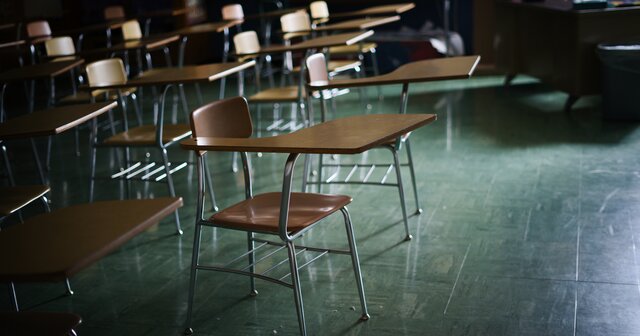
 By Molly Macek
By Molly Macek
Michigan’s students performed worse on recent state tests than they did before the pandemic, and chronic absenteeism continues to impede student achievement. The state needs novel approaches that break free from the status quo.
More than 60% of third graders lack proficiency in reading, according to the 2024 Michigan Student Test of Educational Progress. Reading proficiency rates for third and fourth graders were lower than they were for these same grades in 2023. And all grades performed worse on the state reading and math tests than they did just before the pandemic.
A record of declining test results isn’t the only problem afflicting Michigan’s schools. Public schools report a higher rate of chronic student absence than they did before the pandemic. Students are considered chronically absent when they miss at least 10% of the school days in a year — nearly a month’s worth of classes.
Michigan’s education crisis should be a time for state leaders to increase students’ access to better educational options, using policy ideas that have consistently worked in other states. Instead, Gov. Gretchen Whitmer and the Legislature have enacted laws that remove student achievement measurements and hamstring districts in their efforts to hire quality teachers.
Just last year, the state’s average chronic absenteeism rate was 32%, according to the American Enterprise Institute. That’s six percentage points higher than the national average and 12 percentage points higher than Michigan’s rate was in 2019. Just seven years ago, the state’s absenteeism rate was half what it is today. In the Detroit Public Schools Community District, 66% of students were chronically absent. This is the same district where nearly 90% of third graders failed the state reading test in 2024.
The news is not all bad. The state’s chronic absenteeism rate decreased by seven points between 2022 and 2023. This marginal decrease was lauded by the state’s department of education, which attributed the gains to efforts by local districts and parents to get students to school.
COVID-related illnesses can hardly be blamed for sky-high absentee rates. Shuttering district schools made a lasting impact by disrupting students’ daily routines, exposing students to subpar academic instruction and lowering expectations around daily attendance. Reversing the new cultural norm of weakened school attendance is sure to be an uphill battle.
For some chronically absent students, a private school down the street might be a better fit than their assigned public school. An online school might provide better service for other students. Homeschooling could also be the answer for those who struggle to get to school.
Many states have enacted programs, such as education savings accounts, that help parents cover the costs of school tuition, curriculum materials, private tutoring, online courses, transportation and other education-related expenses. In 17 states, parents can apply to participate in an education savings account. Those parents can receive reimbursements for payments they make toward qualifying educational expenses by using public funds deposited in their name into a government-authorized savings account.
Opening the door to education choice programs such as these would bring much greater opportunity to Michigan families in need, especially those struggling to stay in school and obtain the education they deserve.

The Mackinac Center for Public Policy is a nonprofit research and educational institute that advances the principles of free markets and limited government. Through our research and education programs, we challenge government overreach and advocate for a free-market approach to public policy that frees people to realize their potential and dreams.
Please consider contributing to our work to advance a freer and more prosperous state.

Donate | About | Blog | Pressroom | Publications | Careers | Site Map | Email Signup | Contact